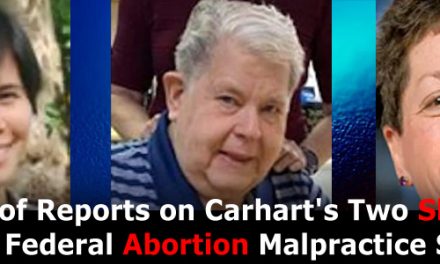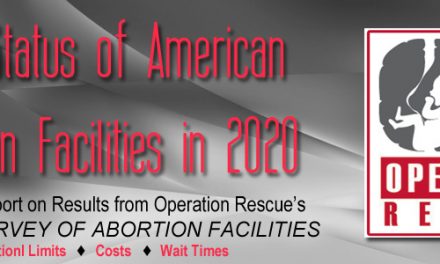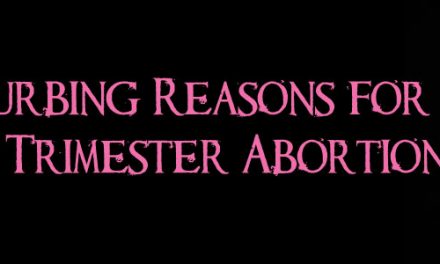“It’s ridiculous – and dangerous.”
[This is the first of a three part exposѐ on late term abortionist Martin Haskell’s special “variance” excusing him from complying with Ohio law.]
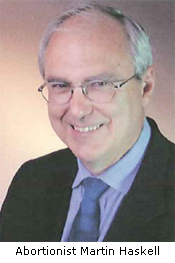
Dayton, OH — Operation Rescue has obtained two recordings of 9-1-1 calls made within seven days of each other for patients of an Ohio abortion clinic that has been specially exempted from complying with a safety law involving emergency transports.
The recordings, made on March 12 and 19, 2009, raise questions about the safety of the clinic and abortions done at Women’s Med Center, a Dayton area abortion mill owned and operated by late-term abortionist Martin Haskell.
But how is it that, of all the physicians and clinics in Ohio, that Haskell’s abortion clinic is the only one that does not have to comport with the law?
To answer that question, one must go back to 1996, when the Ohio Legislature passed a law requiring that all ambulatory surgical centers must be licensed by the state. That licensing required that the ambulatory surgical centers meet certain basic health and safety standards, including the requirement that each clinic must have a transfer agreement with a local hospital.
In 1999, it came to the attention of the Ohio Health Department (OHD) that abortion clinics were not in compliance with the law, having never applied for licensing. The OHD began the process of insuring that all abortion clinics came into compliance.
Haskell refuses to comply
Late-term abortionist Martin Haskell refused the ODH request that he apply for licensure for his Dayton abortion clinic, stating that it was a doctor’s office, not an ambulatory surgical center. The ODH disagreed and ordered Haskell to get a license.
Haskell appealed to the State Administrative Review Board in 2000, which also disagreed with Haskell and ordered him to get a license. The following year, he took his case to the Franklin County Common Pleas courts. The resulting order was the same. Haskell was ordered to license his clinic.
In 2002, six years after the law required Haskell to license his clinic and meet the same basic standards that every other similarly situated physician in the state had to meet, Haskell still had not licensed his clinic. Instead, he appealed to the Ohio Court of Appeals for the 10th Appellate District. Again, Haskell’s arguments fell flat, and he was ordered by the court to license his clinic.
Finally, in the fall of 2002, Haskell applied for licensure for Women’s Med Center, his flagship abortion mill in Kettering, Ohio, a suburb of Dayton.
License denied
On January 9, 2003, the ODH denied Haskell a license because he had no transfer agreement with a local hospital and could not assure “a continuum of care” for patients should a medical emergency arise. That same day, Haskell’s attorneys walked into Federal Court and obtained a restraining order from Judge Susan J. Dlott preventing the ODH from enforcing the law until the case could be adjudicated. Haskell’s abortion clinic remained open.
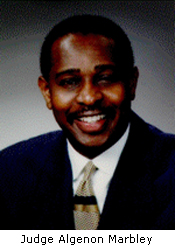
Six months later, the case was heard by Federal District Court Judge Algenon Marbley during a three day hearing. Judge Marbley ruled in Haskell’s favor and ordered the ODH to issue Haskell’s clinic a license.
But that certainly was not the end.
ODH wins again
The ODH appealed to the Sixth Circuit Court of Appeals, which took two and a half years to issue a ruling overturning Marbley’s decision. In February, 2006, the Court told the ODH that it could deny Haskell’s clinic a license, but that a hearing on the license denial must be held if Haskell requests one.
In April, 2006, the ODH informed Haskell of its intent to enforce the law. Haskell immediately filed a request for a hearing, as suggested by the Sixth Circuit.
More delays while Haskell mocks
That request bought Haskell nearly another year of noncompliance. Twice he delayed hearing dates, and finally persuaded the ODH to allow him to argue in writing that he should be exempt from the law.
During this time, Haskell continued to operate under a invalid license that had been issued on the order of Judge Marbley, which had been overturned by the Court of Appeals, making a mockery of the law.
On March 12, 2007, after reviewing Haskell’s case, an officer with the ODH recommended that Haskell’s license be revoked because he failed to comply with the legal requirement that he obtain a transfer agreement with a local hospital.
Inexplicably, it took ODH Director Dr. Alvin Jackson another year to finally issue the order revoking Haskell’s license. Ridiculously, the order gave Haskell 15 days to appeal.
Cease and desist
On February 27, 2008, an inspection showed that Haskell’s clinic still was not in compliance with the law. The ODH issued a cease and desist order, which should have closed Haskell’s clinic. However, that same day Haskell returned to the only judge to rule favorably on his case, Judge Algenon Marbley. He obtained yet another temporary injunction from Marbley barring the ODH from enforcing their cease and desist order.
ODH cries, “Uncle!”
After 12 years of Haskell’s illegal operations and nine years of playing legal games with women’s lives, the ODH finally gave up. It stopped all efforts to enforce the law, giving the excuse that Haskell has assured the ODH that he has three physicians on staff at Miami Valley Hospital in Dayton which have agreed to treat Haskell’s botched abortion patients.
Haskell was granted a “variance” from the ODH, and thus became the only doctor in Ohio to be exempt from a law passed in 1996 meant to ensure that clinics meet basic safety standards.
“There’s a reason why no hospital will make a transfer agreement with Martin Haskell’s late term abortion mill,” said Operation Rescue President Troy Newman. “If every hospital in the Dayton area agrees that Haskell should not be practicing in their facilities, then he shouldn’t be practicing at all.”
“The only thing keeping Haskell operating right now is a temporary restraining order and a spineless health department,” said Newman. “Can you imagine anyone else trying to get a variance so they did not have to comply with the law? It’s ridiculous – and dangerous.”
Coming soon: Part Two: 9-1-1 Calls Show Haskell’s Mill Remains A Danger
[Special thanks to our special investigative team in Ohio and to Dayton Right to Life for their contributions.]

Select Page
